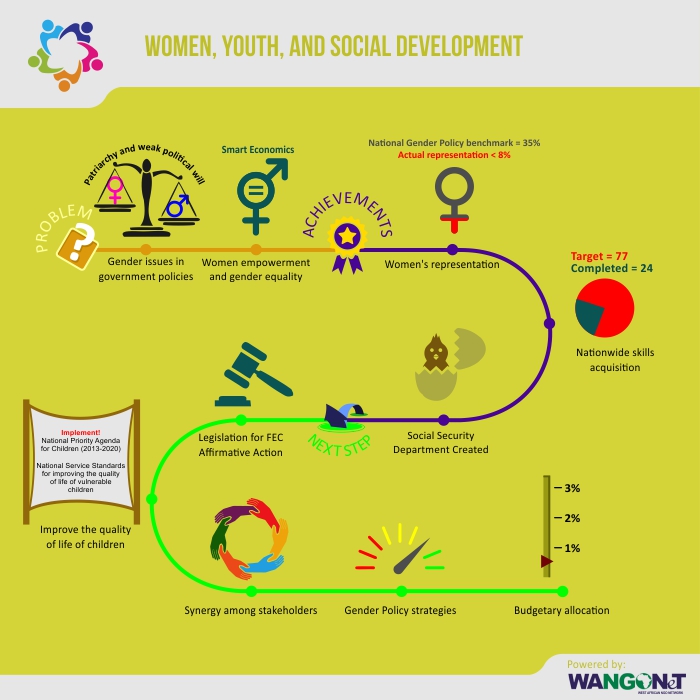Chapter 32
Women, Youth, and Social Development
Background
The population of Nigerian youths is increasing, requiring heavy governmental focus in harnessing the youthful energy for national development. While ensuring gender equality have been at the centre of most government policies, the patriarchal structure of most Nigerian societies have made the implementation of the policies quite difficult. For the about 22 millions Nigerians living with disabilities, however, governmental focus has been minimal, making them experience high levels of unemployment, poverty, discrimination and segregation.
Past Reform and Achievements
The NYSC scheme was created by decree No.24 of 22nd May 1973 to reconstruct, reconcile and rebuild the country after the Nigerian Civil war. The scheme was established “with a view to the proper encouragement and development of common ties among the youths of Nigeria and the promotion of national unity.” Today, the scheme largely provides the labour that shores up the inadequacy in the education sector.
Among the government’s gender initiatives is the National Gender Policy of 2006, which advocated 35% affirmative action to bridge gender gaps in political representation in elective and appointed posts at all levels. In 2010, the establishment of a Gender Unit to be headed by at least an Assistant Director in all MDAs was approved. A New Department of Social Security was created in the Ministry of Labour and Productivity to extend social protection to vulnerable Nigerians. As at the end of May 2013, 9,409,259 people were benefiting from various social security schemes, well over the target of 8,000,000 for 2013.
For person living with disabilities, four braille libraries and press centres were constrcuted at Awka, Bauchi, Calabar and Maiduguri in 2006. New Employee’s Compensation Act was enacted in 2010, to give additional social protection to all workers who may sustain injury at the workplace. Nigeria’s contingent to the London 2012 Paralympic Games were also well funded, leading to their success.
Challenges and Next Steps
Budgetary allocation to the Social Development Ministry should be improved. The executive’s Affirmative Action which saw 33% federal appointments go to women should be backed by legislation, and extended to the other two tiers of government. Aggressive innovative youth employment strategies and schemes should be devised and properly implemented, to tap Nigeria’s growing youthful energy.


